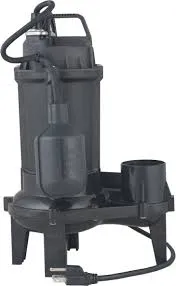TEL:
+86 13120555503
Sesotho
- Afrikaans
- Albanian
- Amharic
- Arabic
- Armenian
- Azerbaijani
- Basque
- Belarusian
- Bengali
- Bosnian
- Bulgarian
- Catalan
- Cebuano
- Corsican
- Croatian
- Czech
- Danish
- Dutch
- English
- Esperanto
- Estonian
- Finnish
- French
- Frisian
- Galician
- Georgian
- German
- Greek
- Gujarati
- Haitian Creole
- hausa
- hawaiian
- Hebrew
- Hindi
- Miao
- Hungarian
- Icelandic
- igbo
- Indonesian
- irish
- Italian
- Japanese
- Javanese
- Kannada
- kazakh
- Khmer
- Rwandese
- Korean
- Kurdish
- Kyrgyz
- Lao
- Latin
- Latvian
- Lithuanian
- Luxembourgish
- Macedonian
- Malgashi
- Malay
- Malayalam
- Maltese
- Maori
- Marathi
- Mongolian
- Myanmar
- Nepali
- Norwegian
- Norwegian
- Occitan
- Pashto
- Persian
- Polish
- Portuguese
- Punjabi
- Romanian
- Russian
- Samoan
- Scottish Gaelic
- Serbian
- Sesotho
- Shona
- Sindhi
- Sinhala
- Slovak
- Slovenian
- Somali
- Spanish
- Sundanese
- Swahili
- Swedish
- Tagalog
- Tajik
- Tamil
- Tatar
- Telugu
- Thai
- Turkish
- Turkmen
- Ukrainian
- Urdu
- Uighur
- Uzbek
- Vietnamese
- Welsh
- Bantu
- Yiddish
- Yoruba
- Zulu
Telephone: +86 13120555503
Email: frank@cypump.com
Mar . 06, 2025 16:45 Back to list
Axial Flow Pump
Flow pumps are at the heart of numerous industrial and commercial applications, offering unmatched efficiency and reliability in fluid transport systems. In the vast realm of machinery and engineering, selecting the right flow pump can make a significant difference in the seamless operation of processes ranging from water treatment to chemical manufacturing.
Moreover, expertise in installation and maintenance cannot be overstated. Proper installation ensures optimal performance, while regular maintenance checks help in early detection of potential issues, such as leaks or motor inefficiencies. This proactive approach ensures uninterrupted service and durability of the pump systems, providing significant cost savings over time. From an authoritative perspective, the market offers a diverse range of flow pumps tailored to specific industry needs. Brands that have a longstanding reputation for quality and innovation in pump manufacturing often provide not only reliable equipment but also knowledgeable customer support, ensuring that users can leverage their products to the fullest potential. Trust in a flow pump brand can be solidified by examining third-party certifications that verify the safety and efficiency of the pumps. Certifications from organizations like ISO, CE, and AWWA testify to the credibility and excellence of the product, offering peace of mind to users who invest in them. In summary, flow pumps play a vital role in the efficient movement of fluids across numerous industrial landscapes. Their versatility, energy efficiency, and integration with modern technologies make them indispensable tools in maintaining the operational harmony of fluid transport systems. By selecting high-quality pumps backed by expert installation, regular maintenance, and certified credibility, businesses can ensure they are well-equipped to meet the demands of a dynamic industrial environment.


Moreover, expertise in installation and maintenance cannot be overstated. Proper installation ensures optimal performance, while regular maintenance checks help in early detection of potential issues, such as leaks or motor inefficiencies. This proactive approach ensures uninterrupted service and durability of the pump systems, providing significant cost savings over time. From an authoritative perspective, the market offers a diverse range of flow pumps tailored to specific industry needs. Brands that have a longstanding reputation for quality and innovation in pump manufacturing often provide not only reliable equipment but also knowledgeable customer support, ensuring that users can leverage their products to the fullest potential. Trust in a flow pump brand can be solidified by examining third-party certifications that verify the safety and efficiency of the pumps. Certifications from organizations like ISO, CE, and AWWA testify to the credibility and excellence of the product, offering peace of mind to users who invest in them. In summary, flow pumps play a vital role in the efficient movement of fluids across numerous industrial landscapes. Their versatility, energy efficiency, and integration with modern technologies make them indispensable tools in maintaining the operational harmony of fluid transport systems. By selecting high-quality pumps backed by expert installation, regular maintenance, and certified credibility, businesses can ensure they are well-equipped to meet the demands of a dynamic industrial environment.
Share
Next:
Latest news
-
Reliable Non-Clog Sewage Pumps with GPT-4-Turbo Tech
NewsAug.04,2025
-
High-Performance Air Pumps for Sand & Gravel | Efficient Transport
NewsAug.03,2025
-
ISG Series Vertical Pipeline Pump - Chi Yuan Pumps Co., LTD.|Energy Efficiency, Corrosion Resistance
NewsAug.03,2025
-
ISG Series Pipeline Pump - Chi Yuan Pumps | Energy Efficiency&Compact Design
NewsAug.03,2025
-
ISG Series Vertical Pipeline Pump - Chi Yuan Pumps Co., LTD.|High Efficiency, Low Noise, Durable
NewsAug.02,2025
-
ISG Series Vertical Pipeline Pump - Chi Yuan Pumps | High Efficiency, Low Noise
NewsAug.02,2025










